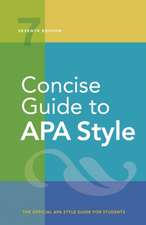Essentials of Descriptive–Interpretive Qualitati – A Generic Approach: Essentials of Qualitative Methods Series
Autor Jr. Elliott, Ladislav Timulaken Limba Engleză Paperback – 4 ian 2021
This book offers a no-nonsense, step-by-step approach to qualitative research in psychology and related fields, presenting principles for using a generic approach to descriptive-interpretive qualitative research. Based on more than 50 years of combined experience doing qualitative research on psychotherapy, the authors offer an overarching framework of best research practices common to a wide range of approaches.
About the Essentials of Qualitative Methods book series: Even for experienced researchers, selecting and correctly applying the right method can be challenging. In this groundbreaking series, leading experts in qualitative methods provide clear, crisp, and comprehensive descriptions of their approach, including its methodological integrity, and its benefits and limitations. Each book includes numerous examples to enable readers to quickly and thoroughly grasp how to leverage these valuable methods.
Preț: 174.95 lei
Nou
Puncte Express: 262
Preț estimativ în valută:
33.48€ • 36.51$ • 28.23£
33.48€ • 36.51$ • 28.23£
Carte disponibilă
Livrare economică 03-17 aprilie
Livrare express 20-26 martie pentru 16.10 lei
Preluare comenzi: 021 569.72.76
Specificații
ISBN-13: 9781433833717
ISBN-10: 1433833719
Pagini: 100
Dimensiuni: 155 x 227 x 7 mm
Greutate: 0.16 kg
Editura: Wiley
Seria Essentials of Qualitative Methods Series
ISBN-10: 1433833719
Pagini: 100
Dimensiuni: 155 x 227 x 7 mm
Greutate: 0.16 kg
Editura: Wiley
Seria Essentials of Qualitative Methods Series
Cuprins
Series Foreword by Clara E. Hill and Sarah Knox
1. Why a Generic Descriptive-Interpretive Approach to Qualitative Research?
2. Designing the Study
3. Data Collection
4. A Framework of Key Modes of Qualitative Data Analysis
5. Writing the Manuscript
6. Methodological Integrity
7. Summary and Conclusions
Appendix. Example Studies
References
1. Why a Generic Descriptive-Interpretive Approach to Qualitative Research?
2. Designing the Study
3. Data Collection
4. A Framework of Key Modes of Qualitative Data Analysis
5. Writing the Manuscript
6. Methodological Integrity
7. Summary and Conclusions
Appendix. Example Studies
References
































